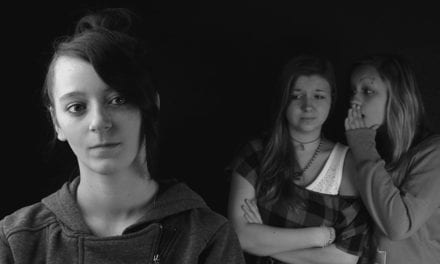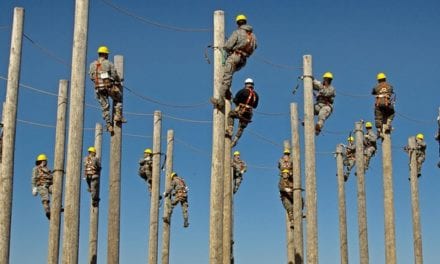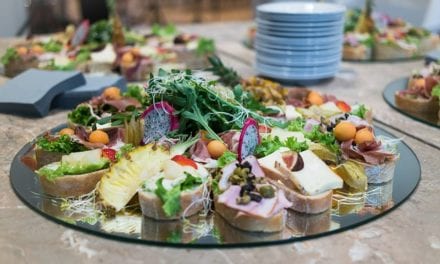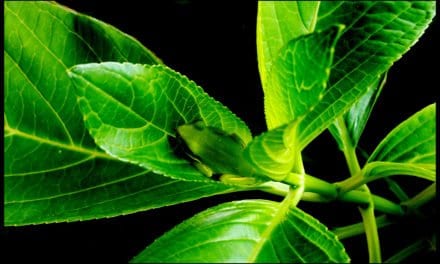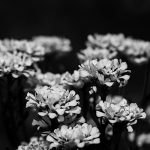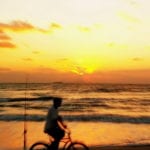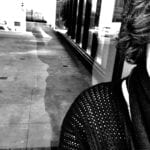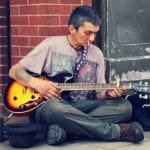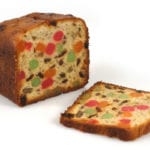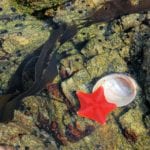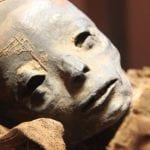Places are like photographs. Your first visit somewhere is the snapshot, and every visit thereafter just adds shadow, highlight, or a frame around what you already know. Like with meeting people, first impressions are cut deeply. Afterwards, you might try to reframe a place’s meaning with some new party or a different season of year in hope of leaving a new watermark, but the original image will remain, however blurry, sepia, or unintentional it may have turned out.
Likewise, the lasting memories of our lives are remembered as moments in particular locations. Think of a defining life experience, and you’ll know exactly where it happened. You won’t remember your to-do list from that day or what you craved for lunch, things which would’ve seemed infinitely important just before the defining moment occurred. They’ll be swept away like silt in a river by the magnitudinous movement of place. Everyone we know is from somewhere, and every story set in some place.
Life, then, is a photographic album, with every era a sleeve of cities, homes, locker rooms, hallways, or skylines watched, organized by the vinyl of personal importance where we’ve kept them.
~~~OOO~~~
Behind the small brick house Tyler rented for me, a whitewashed wooden fence stood covered in wisteria. By spring, the vines would burst with green buds, and its pearling purple petals would begin smelling sickeningly sweet. But, at the time of this story, the wisteria was dying, and it wept under a winter rain. Decaying seed pods lay in the brown stubble of grass. At one time the seeds had been full of life and so also full of poison.
My driver laughed when I told him this, and he squinted at me in the mirror.
“What are you? A botanist?”
“Arborist.”
He pointed out the passenger window, and as the car kept moving, his finger maintained its course like a north arrow in a compass. “French Quarter’s about five minutes that way.”
I was hungry. I’d had nothing. Looking back, I can’t help but wonder what even a single cup of coffee might have changed that day. But for a while that morning, I’d fiddled with what I would later discover was called a Stovetop Percolator. I had the phone between my shoulder and ear, and the three pieces of the machine in my hands like a demented toy tinkerer. I was too concerned with hearing all of Tyler’s wishes to put it together.
“It’s an old hotel with a courtyard. Should have everything we need. Check it out and let me know what you think,” he said. “Of course, if there’s somewhere else you find. . .,” he trailed off.
Did he want me to find a place that would surprise everyone? “Look,” they might say, “Dean picked this. It’s perfect! Dean! Dean! You’ve done it!”
I wasn’t sure.
He didn’t finish the sentence, and I didn’t ask him to. But I did think about it for the rest of the morning and left in a hurry, forgetting hunger, caffeination, and the rest of my basic human needs. I wished I’d asked Tyler to finish his thought.
“Beautiful city,” I said to my driver, trying to focus on something. “I think because of all the flora. The live oaks especially. Quercus virginiana.”
The botanical gardens. There was a place for marriage. The photos online showed beautiful live oaks, expanses of Bermuda grass, and an easy separation from the dirty city. I felt an excitement and hurry to get on with the day.
The driver pointed again. “Over there is the aquarium. We got a great aquarium.”
I nodded, unsure of why he thought I cared about an aquarium.
He went on unchecked. “Huge fish,” he said. “Sharks, tarpon, redfish.”
I watched a mustached man waiting outside with his head down in the drizzle. “Maybe I’ll go then,” I said.
He drew in his eyebrows in great lumps of flesh and hair. “Don’t bullshit me.”
I smiled nervously at him in the mirror, and he avoided my eyes. We passed a white-bricked, corner shop with the image of a great big coffee cup on its window. A bagel would have been incredible, and a cup of coffee, God. But I thought again how pleased Tyler would be if I surprised him, surprised everyone, by finding the quintessential wedding venue. Forgotten friends would begin calling on me, promising to pay for trips all over the country if I’d pick a place for them to be married.
My stomach growled loudly, and I cleared my throat to cover it. The driver must’ve thought I was uncomfortable with the silence because he started to talk again.
“Don’t forget about the Quarter; it’s almost Christmas.”
“Oh.” I found I was glad he’d broken the silence. “Is there something special going on?”
He laughed. “You never been to New Orleans, huh?”
“It’s not that. You said it’s almost Christ. . ..”
“Everybody comes to New Orleans for the Quarter,” he recited. “I guess you’ve got to go.” He motioned for someone to cross the street.
The balconies dripped from their corners down cords of unbloomed jasmine, and the gutters overflowed with rainwater, threatening to flood the city. No one seemed to care. On the streets were waves of bobbing umbrellas, and I began to search the floor of the car for my own.
I couldn’t find it and sighed. “I’ve been.”
He squinted at me through the rearview mirror.
“Why didn’t you say so?”
Because I didn’t want to think about the last time I’d been, when I still had Mia. The car passed quietly through a tunnel of trees. Light flickered with bands and shadows. Limbs of oaks reached over the road and folded together like a preacher’s hands in prayer, and the sidewalks were cracked with roots. I wondered if someone or something had heard those moments of concrete splitting and if it had been frightening.
“If you go to the aquarium, go to the fish room,” the driver said. “I grew up catching fish—seeing them, eating them—but you never really know what it’s like for them. They’re just swimming in groups and watching each other. The big fish swim right by the little ones without paying them any attention.”
To this day, I don’t know why the mention of an aquarium made my heart stutter step. I can’t recall any childhood trauma with fish or water or blue light that might have caused that reaction, but anxiety was so common for me then that I simply thought it normal. Perhaps it was precognition that time. My window had fogged, and I wiped it with my shirt sleeve, desperate to see out.
“I suppose,” I said, taking deep breaths, “they feed them.”
He scoffed and shook his head, and by the time we made it to the Dauphine Orleans, I’d decided he must’ve thought me a fool to have pointed out something so obvious. My heart felt almost normal again. I ran and jumped the boiling potholes that separated me from the eaves of the hotel, then looked back. The driver held a hand out, headed for another fare. My jacket was fairly wet already, and as I walked inside, I cursed myself for forgetting my umbrella.
The concierge eyed me with distrust. I’d been cursing out loud. “This way,” he said, insisting I go first. He ended up having to walk in front of me anyway because I couldn’t figure out where he wanted me to go, constantly looking over my shoulder at him and saying, “this way?” By the time we reached the courtyard, his lips were pressed together like a cat’s mouth.
“Thank you,” I called after him as he stalked away.
My stomach growled. Undoubtedly the white-bricked coffee shop roasted and brewed their own beans, whose rich, dark smells would complement their freshly toasted wheat bread. I decided after I looked at this place long and hard, I’d go.
Kumquat trees bordered the aisle of the courtyard. “Rutaceae,” I said and walked brushing my fingertips through the spoon shaped leaves and little round fruits. Some of them fell.
In the corners of the courtyard, crape myrtles stretched high above the brick walls. If the sun had been out, they’d have cast sparse shade onto the space, giving it depth. But the sun hid, and everything was flat. Rain smacked the brick floors.
“…my mother was a tailor…”
The sounds of the Quarter weren’t confined to the small spaces from where they originated. They launched themselves into the sky where they joined its natural residents, the smells. Mirepoix, fresh baked bread, and kitchen grease that clung to sewer pipes, decade old animal fat and vegetable oil that no amount of flooding could wash free. Wooden drum sticks thunked against buckets. A trumpet sputtered. The Dauphine Orleans courtyard wasn’t separate from the indecency of the Quarter. It seeped in through the cracks.
“…spend your lives in sin and misery…”
They wanted a spring wedding. If it rained, they’d have to set up tents, and if it didn’t, the sea of water below the surface of the city would rise up through the baking brick and make us all wet in our wool suits and lace gowns anyway. They should’ve waited for Fall.
“Dean?”
I looked long at the kumquat tree in front of me. Had it? –
“Dean Holly.”
I turned at the woman’s voice, and somewhat relieved, somewhat disappointed, found Katie Longstreet standing under the archway at the entrance of the courtyard.
“Where’s your umbrella?” she asked as I came over.
I just shrugged and leaned in to hug her but held my hips back, like they were fragile.
“It’s been so long,” she said.
“Yeah, since. . ..”
We both made rewind motions with our hands, figuring.
“Right. . ..”
“Well. . ..”
Between us, two bricks had separated, probably from the pressure of tree roots, and one yellow flower poked through.
“Tyler’s getting married,” I explained. “He rented me a house for the weekend. Vacation, he called it, if I’d look at a few venues for him.”
“Siblings use us, don’t they?”
“Oh, they’re the worst,” I said, glad to have something funny to say. Katie looked so relaxed, so easy. “How about you?”
She faced where a ceremony might take place, a brick stoop in front of the kumquat trees. “Bachelorette party. We’re staying at the Dauphine.”
She began to talk about the events of her weekend thus far, and I let my mind wander around the city with her stories. As much as I tried to stay on the trail of her story, from Bourbon Street to Frenchman to museums of natural whatever, I kept being pulled to the corner coffee shop. My cold skin tightened at the thought of a steaming cup of coffee. My stomach twisted and groaned at the smells of roast beef, fried shrimp, and French bread. The inside of the bread would be like warm cotton. I’d have a croissant afterwards, plain with butter. Maybe pepper jelly.
A raindrop landed on my lip, and it scared me.
“Oh,” I said, wiping it away. “Whose party?”
She scratched the inside corner of her eye. “You hadn’t heard?” There was a long pause. “Mia’s getting married.”
~~~OOO~~~
As I’ve gotten older, I’ve ventured from my arborist vocation and delved into linguistics. Though my wife calls it a hobby, it’s my final great passion. I find it even more fascinating than a well-espaliered cherry tree or the Hercules beetle, one of the strongest bugs in the eastern U.S.
Ounce for ounce though, a more powerful ally would be the spoken word, able to create physiological reactions once reserved for extreme moments like fleeing from tigers. A whisper can squeeze blood into the eyeballs or turn our hands into weapons. All due to a few phonemes strung together.
The nervous systems we’ve inherited don’t belong in us, like coyotes at a tea party. The chairs don’t fit, the cups are impossible to hold onto, and there’s a general howling and eventual smashing of everything inside the pretty little houses where we haven’t even been invited. We’re terribly out of place in our own bodies.
~~~OOO~~~
“Mia?”
My ears had grown stuffy. The rushing sound of wind filled my head like invisible conches. When the rushing broke, a high-pitched ringing began, and my vision narrowed to a single kumquat on the tree.
Katie touched me. “Are you okay?”
“Who? Me?” I waved her off, and it felt as though my hand continued waving long after it rested at my side.
She helped me sit and held one of my hands. Hers were cold. I was sweating beneath my jacket, and the cold rain leaked into my collar so that I wasn’t sure which water was which. I was embarrassed and, against all odds, felt even more awkward. A breeze shook some water from the tree onto my shoulders, and a kumquat fell into my lap. I held it in two creases of my cupped palm. It was smooth. Tiny.
“Rutaceae,” I said dumbly, closing my fist over it.
“Dean,” she said.
“Kumquat,” I said and put the fruit in my pocket, feeling the need to keep something.
“Dean, stop.”
A bird fluttered in the tree above us. More droplets fell.
“Dean, it’s been five years.”
It felt closer to a decade since I’d last been here with Mia, or only a month maybe. Of course, Katie was right, I should’ve stopped. But it was as if someone had started a chainsaw in my chest. My breath quickened. Wool wrapped my lungs.
“Dean, come on.” Katie tugged at my arm. It had begun to rain again.
I knew what was coming. Brick was smoothing out into clay, iron balconies just dirty water lines. The sky began to sink. The clouds were settling on my shoulders and pushing me down. Any moment now, my face would be smashed against the moss-covered brick, and my chest would be crushed under the grey clouds. There was no distinction between me and the horror of the world.
“Gotta go,” I said and stumbled to my feet. The bird flew from the tree.
“Wait, Dean. . ..”
I moved away from her, staggering in low spots in the brick, splashing my pants and tripping. My shoes were wooden blocks. Rounding the corner, my shoulder grazed a stranger’s.
“Pic-kee-toi!” he yelled.
I couldn’t steer straight.
“Beck-moi-tchew!” another said.
and,
“Watch it, fucker.”
I leaned against cold stucco and waited for all the feelings I knew weren’t real, like ginormous hands, a swollen forehead, and numb knees, to go away.
“Breathe so fully,” Tyler had told me after the first time, “your stomach bulges and chest cracks.” He’d patted me on the shoulder. “Do it until you pass out. Then, it’s like waking up to a new day. Refreshing even.”
It never worked, but I breathed like some great fool, taking gulps of air and extending my exhales despite my heart hammering against my collar bones, urging me to breathe faster. I pulled my phone from my pocket and began to curse again for having forgotten to charge it.
“Excuse me,” I gasped to the person nearest me, “could you point me towards the botanical gardens?” The wise trees and confident, grassy knolls would bring me back. They always did.
The man looked at me for a moment, squinting, trying to decide whether I was dying or just insane. He finally pointed down the street. “That way as far as you can,” he said.
Angel.
I began to walk, slowly at first, and then with haste, because my heart hadn’t slowed and moving slowly was sickening and dreamlike. There were crispy, rich smells of fried food, to which my stomach snarled, but my mouth watered to prepare to vomit. The street bars and open-doored restaurants were pumping with people, and a great humming seemed to come from a central location to my right. I was skirting the nucleus of activity.
A whistle pierced the air, and I looked over where a woman was eyeing me. “Aye, Sha!”
Now, later in life, I realize it wasn’t actually a woman, but a man, and I had to look up what Sha meant. In those days, I had a mild distaste with the English language and felt that cherry blossoms and palm fronds were more honest than people. To stand beneath sweeping pine boughs with the smells of lavender and rosemary blooming nearby, and the hungry butterflies and bees fluttering around them, that was what I thought my brother and his soon-to-be wife deserved. And what at that moment I did too. Instead of trying to understand people, I listened only enough to get by and spent my time fraternizing with trees and flowers. It took a while before I believed I was the same as everyone else.
So, I tried to smile at the man who yelled, because I’d found a smile generally was enough to make people lose interest in you. I careened on, looking over my wet shoulder to be sure he wasn’t following me. He just watched from beneath clumpy, black eyelashes.
I hustled until my calves burned, and when the rain fell so hard I thought I might drown, that’s when I came to the aquarium. Under the awning, panting and dripping, I heard someone ask if they could help me.
“No,” I said. “Well, yes.”
I looked around at where I was and whispered, “Son of a bitch.”
The halls were carpeted. Few people were inside besides an old man who watched the door and a young couple that walked unaware of anyone but themselves. Lively lizards and fat toads gobbled up tiny, tan crickets inside glass boxes with wood chips for floors. There were black lights and glowing arrows on the walls.
A space of absolute turquoise opened in front of me with light that rolled on my skin in white waves. The hair on my arm was illuminated by false moonlight, and it cast a single shadow behind a boy who stood near the glass walls from where the light and color came. With no one else around and nothing else I could think to do, I went and stood by him.
“Hi,” I said.
The fish were great, shimmering creatures, silver and long as the boy was tall, with eyes like silver dollars dolloped by green paint. They swam in a circuit, sticking together by type, except for the largest, who swam alone. A sea turtle drifted by, his feet like giant green prunes with wrinkles deep as canals. In the middle of the circuit, a shark idled.
I reached out and touched the glass with one hand, the other on my chest.
The boy’s voice was bright and scared me with how it rang out in the empty room. “Don’t worry,” he said. “The shark doesn’t bother them.”
He couldn’t have been older than seven or eight, and I pocketed my hands with a little embarrassment. There was the kumquat. It was still smooth, and I rubbed it like a wishbone to soothe my thoughts. But if a person’s chest had walls, mine were the kind that closed inwards like a tomb. My lungs had shriveled into raisins. I leaned over heaving, hands on knees, and realized that I’d smashed the kumquat in my fist.
“Really, don’t worry,” the boy said, patting my arm with his little hand. “They’ll feed them.” He sniffed.
“Something smells like orange.”
“It’s a kumquat,” I croaked. “Rutaceae.”
I tried to inhale deeply, to crack my chest and bulge my belly, but my chest had collapsed. As the floor rushed up at me, I thought that Tyler might be proud I’d finally fainted using his technique.
When I opened my eyes, I was on my back, and the little boy stood over me. His face was familiar, dark hair, with soft features like those on a home video. His shoulders looked wet. I wanted to offer him my umbrella but remembered I didn’t have one.
Darkness, then the turquoise room again. I wasn’t in my bed, or even the bed Tyler rented for me, and it had been quite some time since I’d woken up confused that way.
“Hello?” I said, sitting up.
I can’t say I felt refreshed, but was certainly altered and sat blinking at the sea of blue life long enough for the sea turtle to make a lap. I wondered if the boy had gone to get help, or if he’d just wandered away to find more glass to look through, another exhibit to be fascinated with. I wondered if he’d been real. Some part of me believed passing out in public was against the law, so I got up and slipped away.
Outside, the brick was still wet, but no rain fell. I looked around at the tumbled streets, the crowds of friends and families, unphased by the weather, laughing and talking, sticking together, weaving their way around light poles and homeless people.
“Excuse me,” I said to a man sitting against a post. He wore an old army jacket and had dirt-filled crow’s feet. “Can you tell where the botanical gardens are?”
His eyes were ice-blue, and they cut at me. He inflated his chest and let it out in a long sigh. When he opened his mouth, I saw that he had fewer teeth than most infants.
“Thatta way,” he said, pointing. “But you ain’t gonna find nothing there.”
“Right, well. . ..”
“Look around,” he said. “There’s plenty of garden right here.”
He held out a hand, and I stared at the dusty skin beneath the tattered glove. “You’ve got it,” he said, smiling with those sparse crowns. I looked around for a moment and then gave him the change in my pocket.
I trudged off in the direction he pointed. Eventually, I made my way into the middle of the street to avoid all the excited young people who kept bumping into me. From there, I stopped and watched the sea of movement, people blurring into each other’s shapes, doorways unrecognizable from each other, and the horizon line of both ends of the street identical. But on the corner a burly bougainvillea vine drooped down from an iron balcony touching a coffee cup printed on the window. It had wisps of steam the size of my hands.
Smells of peppercorn and syrup, or espresso and beer malt, filled the air, and I brushed past a family to get inside. I scanned the cafe until I found a table near the window where a cup of coffee was poured without my asking. A slender, pale hand held the carafe steady. Her class ring was green.
“What can I get you?” she asked.
I touched the cup and looked up. The waitress had short blonde hair. When I said nothing, she offered a confused look and went away.
I tasted the coffee and the hairs on my arm stood up then laid flat. It took a moment to peel off my wet jacket. Then I spread the contents of my pockets on the table. There were the remains of the smashed kumquat. Tiny crumbs from a tiny fruit I’d destroyed. But it smelled alive, and a little like an orange. Sticky and sweet as it should be. The coffee was hot in my belly.
Peering through the giant wisps of white steam on the window, I saw the family I had brushed past. The parents were young, and they seemed to be deciding if they’d come inside or keep on walking, their options endless, a fun game of here or there. They each held a child’s hand. There was a little girl who was pulling at her mother’s sleeve while her brother poked at her ribs. I saw that the little boy had dark hair. Familiar features, soft like a home video. He wore a rain jacket.
My phone rang in my pocket. I figured it would die but answered anyway.
“Hey brother,” Tyler said, “how’s it going down there?”
I took a scalding drink of coffee, trying to keep an eye on the family through the slit of glass. “It’s alright.”
“What have you found? Anything good?”
I barked a little laugh.
“What?” he said. “What is it?”
The waitress came by again, and I put my hand on the menu, wishing for only more time and the luxury of looking over my choices, of staying a while without having anything to do. I smiled at her, and she smiled back this time.
“You know, Tyler,” I said, “I think I’ve found it.”
“Are you sure?” he asked. “Have you seen enough?”
Pin prick droplets landed in the puddles on the street. Seemed it would rain again, but the blue hues of the facades were warming, hinting at copper. The little boy broke free from his father’s grip and ran into the street.
I could see him in the gap between the white shapes of coffee steam on the window. He leapt with rubber-booted feet, his hands in little fists, his teeth bared in satisfaction, and he landed in a puddle. Water exploded around him, and he looked wide-eyed at the sky.
This, he must’ve thought, maybe this feeling is what heaven is like. Then the father grabbed his hand and pulled him back. The family walked away, back towards where I’d come from. The little girl teased her brother with a finger in his ribs. Nowadays, I like to think that he had been fighting a smile as he slapped her hand away.
“It’s the Dauphine Orleans,” I said. “You’re going to love it.”

